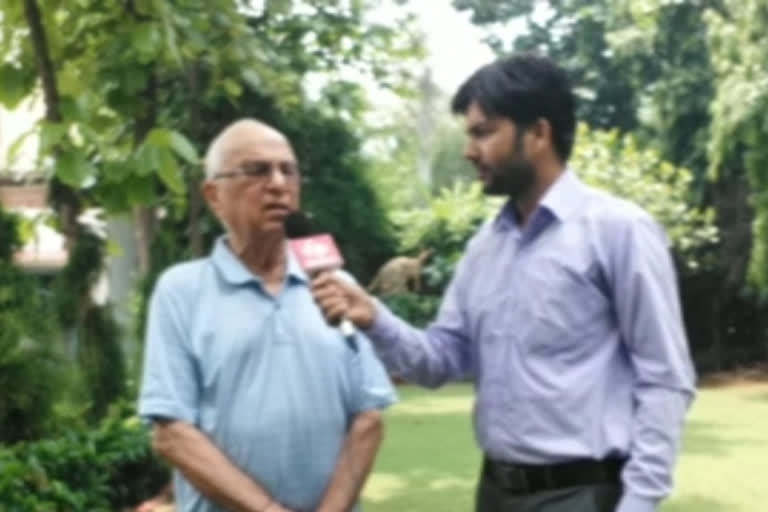New Delhi/Jammu and Kashmir: With the Union Home Minister Amit Shah modifying Article 370 - which grants special status to Jammu and Kashmir- except clause (1) of the Article, therefore bifurcating Jammu and Kashmir into two Union territories – Jammu and Kashmir, which will have a legislature, and Ladakh, which will be without a legislature.
Speaking to ETV Bharat Constitutional expert Subhash Kashyap said that Article 370 is temporaray in nature.
"Part XXI of the Constitution has three provisions - Temporary, Transitional and Special Provisions, and Article 370 is temporary in nature. The heading of 370 itself explains that it is a temporary provision and not a special provision, hence providing temporary status to Kashmir and not a special status. This is what has led the government to believe that they can amend the law as it is a temporary one, " said Kashyap.
He asserted, "It would be wrong to say that Article 370 is being revoked, clause (1) of the Article will remain intact, only (2) and (3) will be revoked."
Elaborating clause (1) of the Article, Kashyap said, "Clause (1) ensures that all the other parts of the Constitution which were not included in the Instrument of Accession will be applicable in Jammu and Kashmir with the consent of the state government."
On whether Article 370 is amendable, Kashyap said, "Every Article of the constitution can be amended by the Parliament under Article 368. I believe that after modifying Article 370, the Government will extend the provisions of Article 368 to Jammu and Kashmir."
Also read: Do not take law into your own hands, stay calm: Omar Abdullah appeals J-K people
When asked if Article 35A would also be revoked, Kashyap said, "It is natural that Article 35A would be revoked, as it was included in the Constitution after a Presidential Order. Article 35A could have been revoked without making any changes to Article 370 with the consent of state government."



